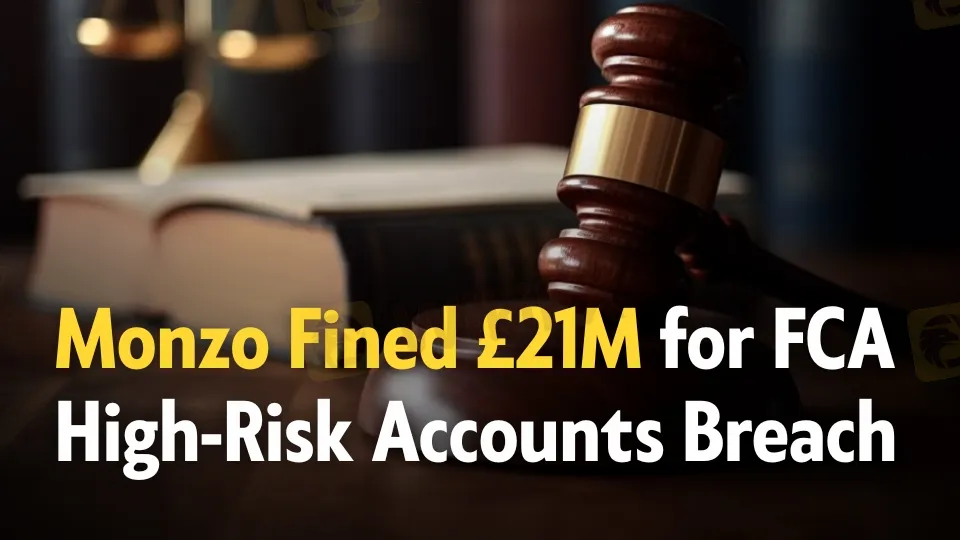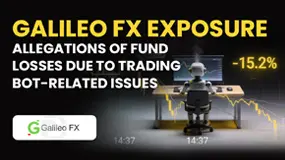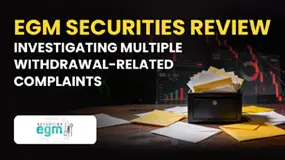Accountant Loses RM460,888 to PFOU Syndicate’s UVKXE App Crypto Scheme
A 61-year-old accountant has lost RM460,888 after falling victim to a fraudulent crypto investment scam named “PFOU”.
简体中文
繁體中文
English
Pусский
日本語
ภาษาไทย
Tiếng Việt
Bahasa Indonesia
Español
हिन्दी
Filippiiniläinen
Français
Deutsch
Português
Türkçe
한국어
العربية
Abstract:The FCA fines Monzo £21M for anti-money laundering failures, citing high-risk account breaches and systemic control failures. Discover Monzo’s response and improvements.

Monzo Bank Ltd has been hit with a £21,091,300 fine from the UK‘s Financial Conduct Authority (FCA) for serious lapses in its anti-financial crime controls between October 2018 and August 2020. This penalty underscores Monzo’s failure to keep its financial crime defenses robust during a period of explosive growth, a misstep that exposed the bank to significant risks. The FCA has been cracking down on UK banks for anti-money laundering (AML) shortcomings, and Monzos case stands out due to its rapidly expanding customer base, which jumped from 600,000 in 2018 to over 12 million today.
The Monzo FCA fine 2025 highlights why banks and financial institutions must prioritize airtight financial crime controls, especially as their customer numbers soar. Monzo struggled to scale its systems to match its growth, leaving gaps that could have allowed financial crime to slip through.
The FCA‘s investigation found Monzo’s financial crime systems weren‘t up to the task of handling its rapid expansion. The bank’s customer onboarding process was shaky, with some customers listing implausible addresses—like famous London landmarks—without proper scrutiny. Worse, Monzos risk assessment systems failed to flag high-risk customers. Between August 2020 and June 2022, the bank breached FCA rules by opening accounts for over 34,000 high-risk customers, despite a clear ban on doing so.
This breakdown in Monzos financial crime controls exposed the challenges digital banks face in balancing growth with compliance, particularly in customer onboarding and transaction monitoring.

Monzo‘s fine is part of a broader FCA push to hold UK banks accountable for weak anti-money laundering systems. Over the past four years, the FCA has fined ten financial institutions, with Monzo being the latest. The regulator is intensifying efforts to stop illicit money from flowing through the financial system, and Monzo’s case shows why. Therese Chambers, FCAs joint executive director of enforcement, put it bluntly: “Banks are a vital line of defense against financial crime. Monzo fell far short of what we, and society, expect.”
By allowing high-risk accounts to slip through, Monzo opened the door to potential money laundering and other illegal activities, a critical failure in its financial crime prevention strategy.
Monzo‘s CEO, TS Anil, acknowledged the FCA’s findings but stressed that the issues were historical, tied to a period ending three years ago. Since then, Monzo has rolled out major upgrades to its financial crime controls through a comprehensive change program. These efforts focus on strengthening anti-money laundering systems, improving customer onboarding, and enhancing risk assessment and transaction monitoring.
Monzo has poured resources into technology and staffing to address the FCAs concerns, following recommendations from an independent review. The bank is now working to position itself as a leader in managing financial crime risks, with a sharp focus on AML compliance.
Monzo‘s fine is a wake-up call for digital banks navigating the fight against financial crime. As more people flock to online banking, the risks grow alongside customer numbers. Monzo’s leap from 600,000 to over 12 million customers in just a few years shows how fast digital banks are scaling—and how hard it is to keep compliance systems up to speed.
Criminals are increasingly targeting digital financial systems, so banks like Monzo must stay ahead with innovative anti-money laundering measures. Robust systems are critical to balancing growth with security and compliance.
The Monzo FCA fine of 2025 serves as a sharp reminder that financial crime controls cant lag behind growth. Monzo has made significant strides in fixing its anti-money laundering systems, and these improvements aim to rebuild trust and strengthen compliance. Still, this case is a broader lesson for digital banks: staying vigilant against financial crime is non-negotiable. As the digital banking world evolves, so must the strategies to keep criminals at bay, ensuring robust systems protect both banks and their customers.

Disclaimer:
The views in this article only represent the author's personal views, and do not constitute investment advice on this platform. This platform does not guarantee the accuracy, completeness and timeliness of the information in the article, and will not be liable for any loss caused by the use of or reliance on the information in the article.

A 61-year-old accountant has lost RM460,888 after falling victim to a fraudulent crypto investment scam named “PFOU”.

Switched to Galileo FX from other brokers, thinking that you would earn profits, but things went the other way round? Did you continue to face losses despite executing constant optimizations on the trading software? Like did you experience issues concerning executing stop-loss orders? Failed to cash in on the positive market wave because of the broker’s trading bot? You are not alone! Many complaints concerning losses due to trading bot deficiencies have been doing the rounds. In this Galileo FX review article, we have demonstrated these complaints. Take a look!

EGM Securities has been reported as a scam by many forex traders, as they encountered several problems concerning fund withdrawals. The broker is alleged to have defrauded traders by applying unnecessary restrictions on withdrawals. Also known as FXPesa, the broker seems to have caught traders’ attention, mostly for negative reasons, though. In this EGM Securities review article, we have discussed withdrawal-related complaints made against the broker online. Keep reading!

Discover PU Prime’s new campaign, “The Grind,” and learn how trading discipline builds long-term success. Watch and start your trading journey today!
